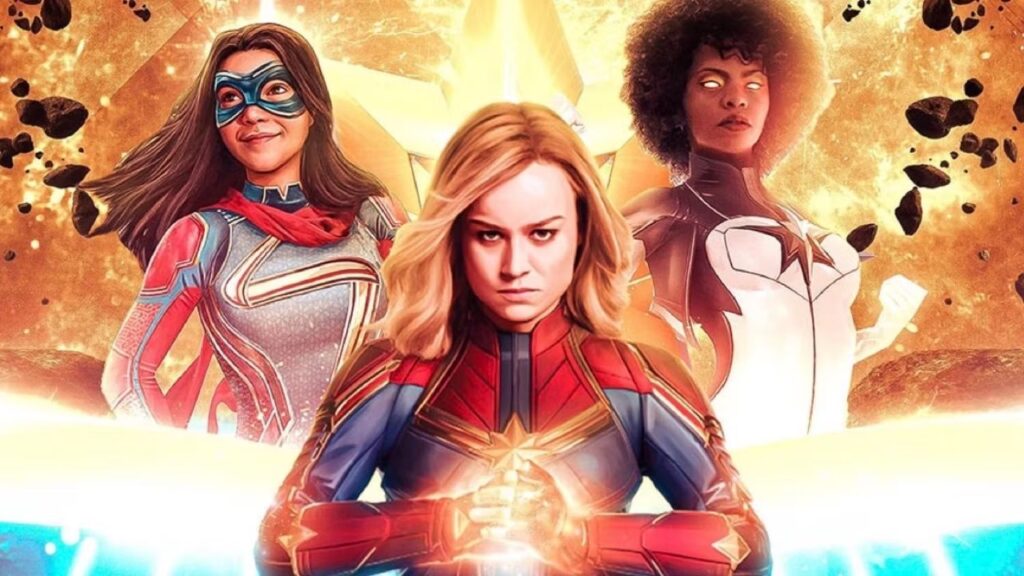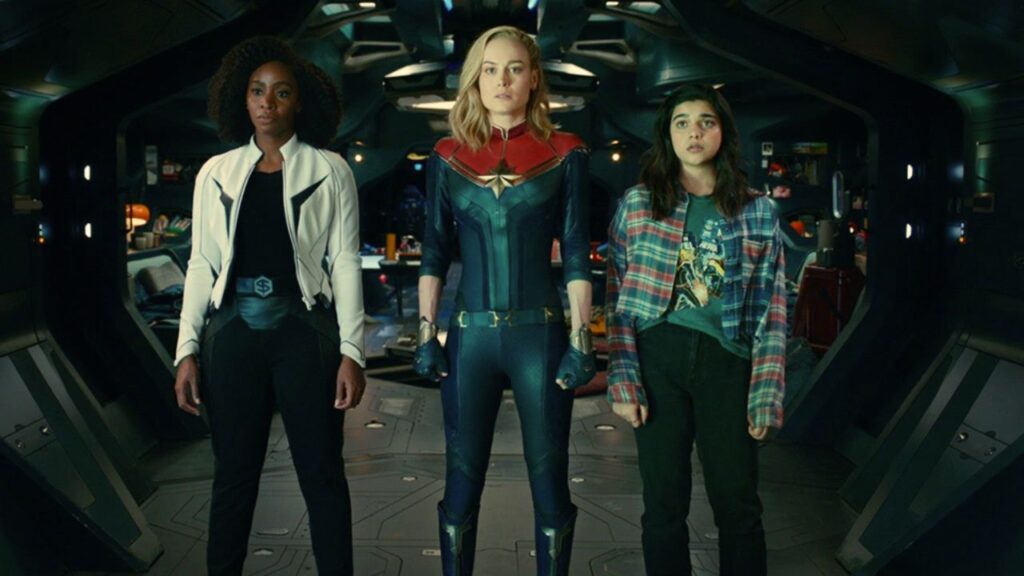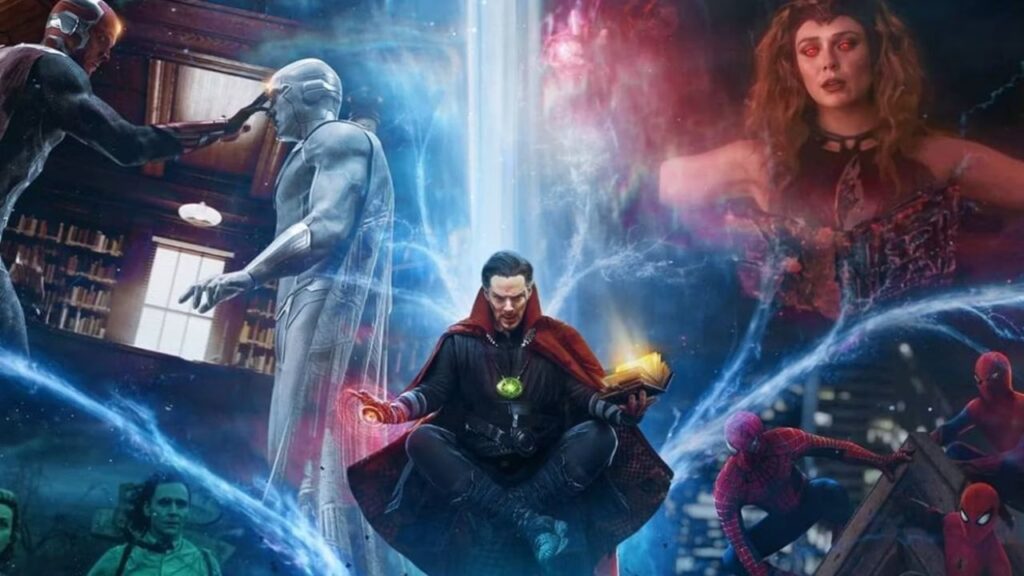
The Marvel Cinematic Universe (MCU), a giant in the world of cinema, has faced its fair share of triumphs and challenges. Recently, The Marvels box office marked a significant chapter in MCU history, but not for the reasons the franchise has grown accustomed to. Box office challenges have cast a shadow over this cosmic adventure, leaving fans and industry experts grappling with questions about the future of the MCU.
The Marvels Box Office
The film was released on November 10, 2023, and it has been met with critical acclaim. It has been praised for its action, its humor, and its performances. “The Marvels,” the highly awaited sequel to 2019’s “Captain Marvel,” burst onto the scene with a buzz of excitement and a galaxy of expectations. Starring Brie Larson as Carol Danvers (Captain Marvel), alongside Iman Vellani as Kamala Khan (Ms. Marvel) and Teyonah Parris as Monica Rambeau, the film promised a cosmic journey that would seamlessly weave together the threads of these powerful heroines.
However, The Marvels box office reception told a different tale. The opening weekend of “The Marvels” saw lackluster numbers, making it the lowest-grossing domestic opening in MCU history. With just $47 million in the United States against a hefty budget exceeding $200 million, the film faced an uphill battle from the start.

Theories about The Marvels Failure
The problem with “The Marvels” is that, even though it had important messages about different cultures and inclusivity, not many people went to see it in theaters. The movie was supposed to be part of a positive change in the film industry, but it didn’t make as much money as expected. This situation caused a conflict in what people expected and what actually happened. Despite the film trying to do something new and important, it didn’t do well at the box office. This makes us think more about how superhero movies are made today and how people react to them.
Stephen King Defending The Marvels
As disappointment echoed through the entertainment industry, an unexpected defender emerged – none other than legendary author Stephen King. While King may not be a self-proclaimed fan of MCU movies, he found it distasteful that some viewers were celebrating the film’s box office struggles. On Twitter, he called for an end to the gloating, emphasizing that there’s no reason to mock movies for their financial performance.
In a world where success is often measured by box office numbers, King’s perspective brings a refreshing reminder that a film’s value goes beyond its monetary gains. The cultural impact, storytelling, and the joy it brings to audiences are all factors that contribute to a film’s significance.
“The Marvels” Challenges
“The Marvels” faces a unique set of challenges beyond its box office performance. As the MCU transitions into its Multiverse Saga, introducing new characters and storylines, it grapples with the changing landscape of superhero cinema. The era of dominating box office returns with every release might be evolving into a period of recalibration.
Superhero fatigue, a term thrown around in recent years, suggests that audiences might be experiencing a saturation of superhero content. The MCU, known for its interconnected narratives and ensemble casts, could be facing a moment of reflection on how to keep the genre fresh and engaging.
Diversity and Backlash
“The Marvels” is not just a superhero movie; it’s a symbol of the MCU’s commitment to diversity and representation. Led by three women, including two women of color, the film reflects a shift towards inclusivity in the traditionally male-dominated superhero genre.
However, with change comes resistance. Some speculate that part of the backlash against “The Marvels” could be rooted in resistance to a more diverse cast of characters. The celebration of failure, as pointed out by Stephen King, may be fueled by an aversion to this shift in the status quo.
MCU’s Evolution and Future

While “The Marvels” grapples with its box office challenges, it’s essential to recognize the resilience and evolution embedded in the MCU’s DNA. The franchise has weathered storms before, bouncing back from setbacks and pushing boundaries.
The multiverse concept, teased in recent MCU projects, opens up new narrative possibilities and avenues for exploration. The interconnected web of characters allows for fresh perspectives and storytelling avenues that can captivate audiences anew.
Conclusion: Beyond Box Office Numbers
In navigating the Marvels box office challenges, the MCU stands at a crossroads. It’s a moment that beckons reflection, adaptation, and a reaffirmation of the core values that make the MCU a cultural phenomenon.
As audiences, critics, and industry insiders assess the impact of “The Marvels,” Stephen King’s words serve as a poignant reminder. Beyond the box office numbers, there lies a rich tapestry of storytelling, representation, and cultural significance that defines the MCU. Whether facing hard times or soaring to new heights, the Marvel Cinematic Universe remains an ever-evolving force in the world of cinema, promising more surprises and superhero tales in the chapters yet to unfold.